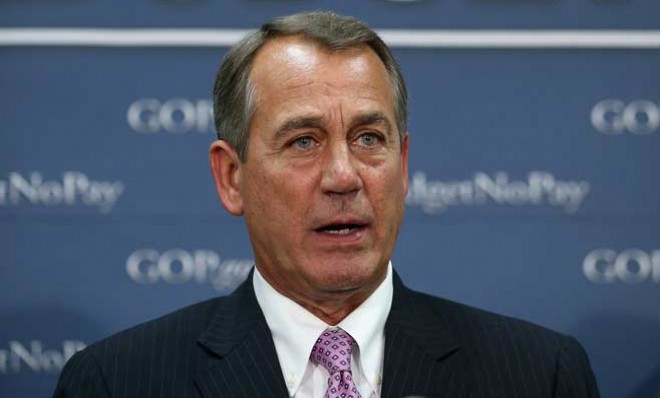The middling January unemployment report: When will Congress focus on jobs?
The labor market is improving at only a sluggish pace. And lawmakers seem fixated on every issue except unemployment


The Labor Department reported on Friday that the economy added 157,000 jobs in January, the latest evidence that the labor market is improving at a solid, if not stellar, rate. The unemployment rate ticked up to 7.9 percent, from 7.8 percent the previous month, largely because more unemployed people re-entered the workforce in search of jobs.
Repeating a familiar pattern, the private sector created 166,000 jobs in January, while the government — at federal, state, and local levels — shed 9,000 workers. There was strong growth in the retail, construction, and health care industries. Furthermore, the Labor Department, using revised data, said that 335,000 more jobs were created in all of 2012 than initially reported.
All of which may sound like good news — but analysts say the labor market is far from healthy. Job growth is barely keeping up with population growth, and if that trend holds, the unemployment rate is unlikely to fall significantly in 2013. The proportion of people participating in the workforce is at a 30-year low, and those who have been out of work for an extended period of time continue to struggle. As Catherine Rampell at The New York Times writes:
The Week
Escape your echo chamber. Get the facts behind the news, plus analysis from multiple perspectives.

Sign up for The Week's Free Newsletters
From our morning news briefing to a weekly Good News Newsletter, get the best of The Week delivered directly to your inbox.
From our morning news briefing to a weekly Good News Newsletter, get the best of The Week delivered directly to your inbox.
For the long-term unemployed — who now represent 40 percent of all jobless workers — the opportunities still seem few and far between. Millions have exhausted their unemployment benefits and many more will roll off the government’s system in the coming months with no viable options in sight. [The New York Times]
Furthermore, the economy is now headed toward a stretch of uncertainty, ominously foreshadowed by a recent Commerce Department report that showed the economy shrank in the fourth quarter of 2012. A payroll tax cut recently expired, which may mean consumers will have less pocket money to spend in 2013. And Congress is preparing for a budget battle in the coming weeks that could result in a raft of across-the-board spending cuts, which would likely eat into employment in the short term.
Indeed, the top economic issue for Congress at the moment isn't joblessness, but the budget. Budget hawks have warned that failing to get the deficit under control would hurt the economy, and that is almost certainly true in the long run. But there have been few, if any, indications that this is true in the short term, as millions of unemployed people continue to look for work. As Matthew Yglesias at Slate writes:
[I]t's worth remembering that back during the lame duck session the fix the debt crowd was constantly braying about the dire consequences of failing to reach a major budget deal. They said that not only would full implementation of the cliff be a Keynesian drag on the economy, but also that fire and brimstone would rain down upon us if markets weren't assured that Congress has a credible plan to tackle long-term fiscal challenges. [Slate]
However, Republicans, in particular, continue to bang the deficit drum, even as critics argue that there is no discernible link between high unemployment and a large deficit. And Democrats, for their part, haven't offered many solutions of their own, though they did manage to extend unemployment insurance benefits as part of the fiscal cliff deal. There was also Obama's token proposal for $50 billion in new infrastructure spending, but that remained on the negotiating table for about a millisecond before it was shelved.
And so the labor market shambles along — with neither party in Congress offering any reinforcements.
A free daily email with the biggest news stories of the day – and the best features from TheWeek.com
Ryu Spaeth is deputy editor at TheWeek.com. Follow him on Twitter.
-
 Did Alex Pretti’s killing open a GOP rift on guns?
Did Alex Pretti’s killing open a GOP rift on guns?Talking Points Second Amendment groups push back on the White House narrative
-
 The 8 best hospital dramas of all time
The 8 best hospital dramas of all timethe week recommends From wartime period pieces to of-the-moment procedurals, audiences never tire of watching doctors and nurses do their lifesaving thing
-
 ‘Implementing strengthened provisions help advance aviation safety’
‘Implementing strengthened provisions help advance aviation safety’Instant Opinion Opinion, comment and editorials of the day